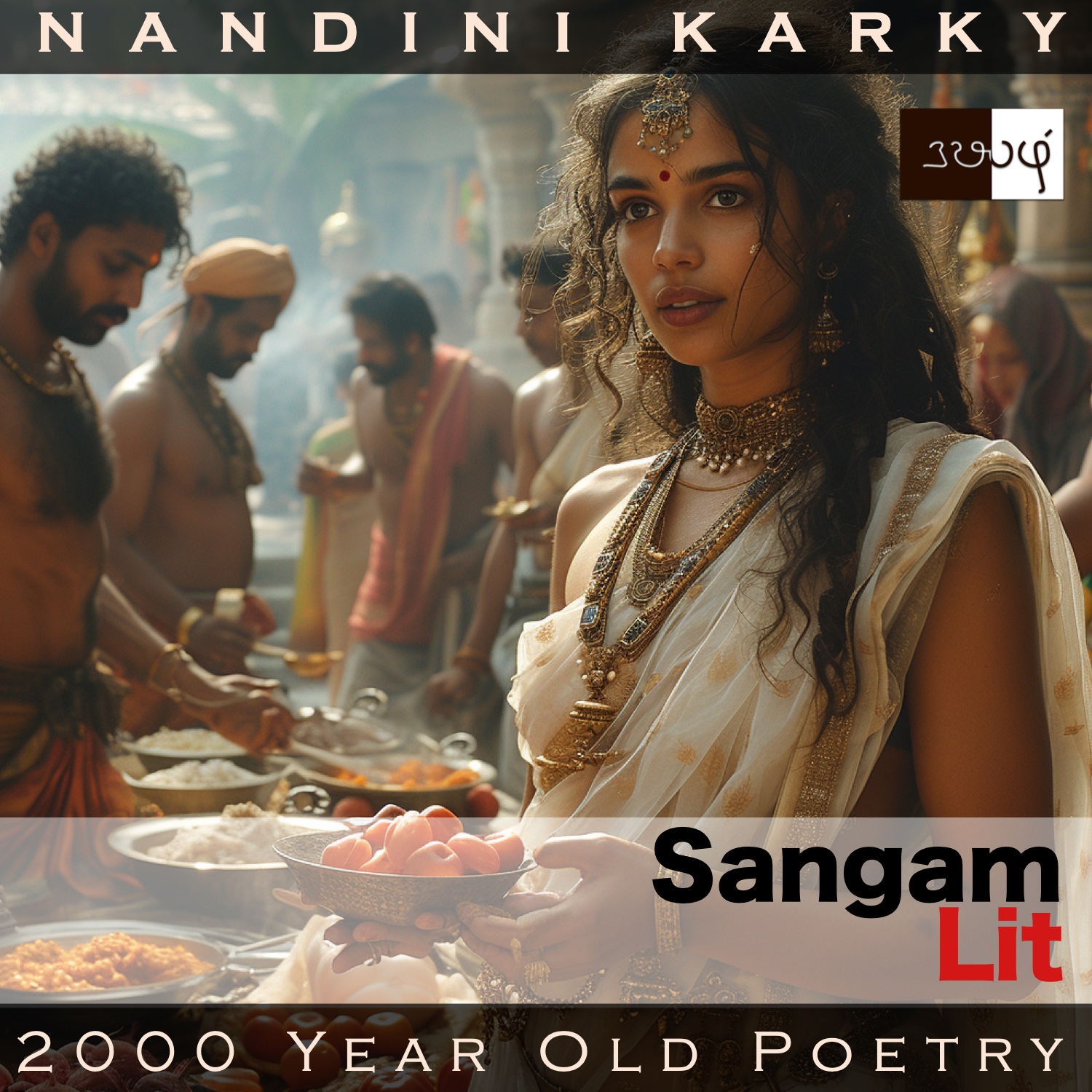Podcast: Play in new window | Download
Subscribe: Apple Podcasts | Spotify | Amazon Music | Android | iHeartRadio | TuneIn | RSS | More
In this episode, we learn of the acts of compassion in a household, as depicted in Sangam Literary work, Puranaanooru 334, penned by the poet Madurai Thamizh Koothanaar. The verse is situated in the category of ‘Vaagai Thinai’ or ‘Victory’ and gives a glimpse of the division of labour in Sangam times.

காமரு பழனக் கண்பின் அன்ன
தூ மயிர்க் குறுந் தாள் நெடுஞ் செவிக் குறு முயல்,
புன் தலைச் சிறாஅர் மன்றத்து ஆர்ப்பின்,
படப்பு ஒடுங்கும்மே ……….. பின்பு
………………… ன் ஊரே மனையோள்
பாணர் ஆர்த்தவும், பரிசிலர் ஓம்பவும்,
ஊண் ஒலி அரவமொடு கைதூவாளே;
உயர் மருப்பு யானைப் புகர் முகத்து அணிந்த
பொலம் …………………………
பரிசில் பரிசிலர்க்கு ஈய,
உரவு வேல் காளையும் கை தூவானே.
A song with many missing lines but conveying the essence of generosity again. The poet’s words can be translated as follows:
“With shining hair, akin to elephant grass that grows near picturesque waterbodies, small feet and long ears is the short hare. When young children with scanty hair shout out aloud in the town centre, it would rush to hide in the straw heap… The wife, heeding to the needs of bards and seeing to the welfare of supplicants, as the sounds of eating meat resounded, had not a moment of rest for her hands; As for her husband, the young bull-like man with a sturdy spear, giving away golden ornaments worn on the spotted faces of elephants with raised tusks to supplicants who came seeking, had not a moment of rest for his hands too.”
Let’s explore the nuances. As if the hare jumping about in the previous verse took a leap to this one, we see the poet here focusing on its fur, which he places in parallel to elephant grass that grows near lakes and streams. Then, he goes on to say how the hare would be startled by the sound of young children playing and shouting and would run to hide in the hay stack. After describing the leader’s town so, the poet goes on to say how a lady’s hands finds no rest whatsoever because as echoed by the sounds of eating meat that resounds around her house, she is constantly serving feasts for supplicants and bards. Likewise, her husband’s hands too gets no rest, says the poet, mentioning how he’s ceaselessly giving away golden ornaments on elephants of enemy kings he had won to those supplicants. What’s striking in this verse is the facet of sound in the shouts of children and the relished savouring of food by supplicants, as well as the twin images of a man’s hands and a woman’s hands doing different work but with the same ultimate purpose of serving those who come to their door!




Share your thoughts...